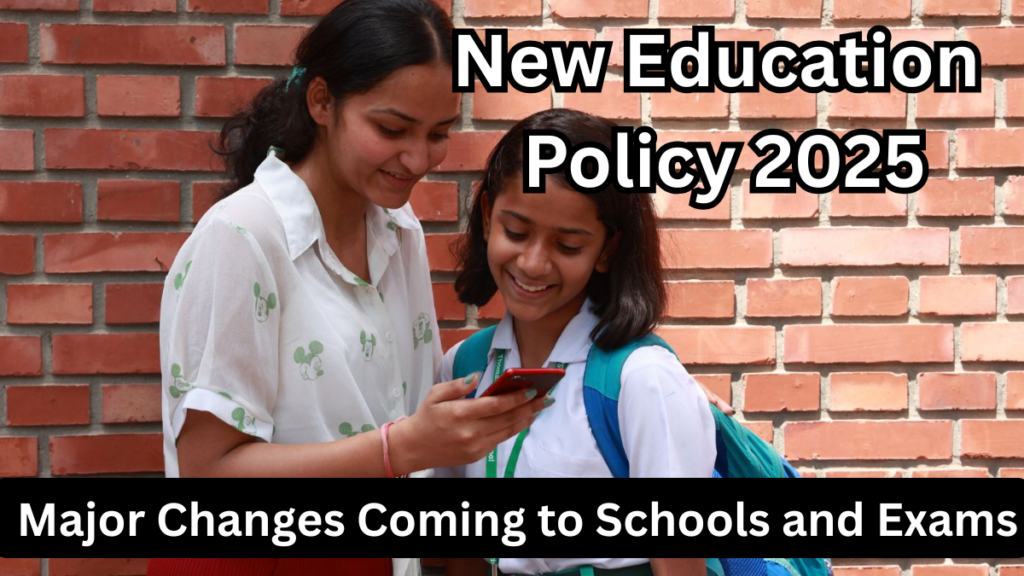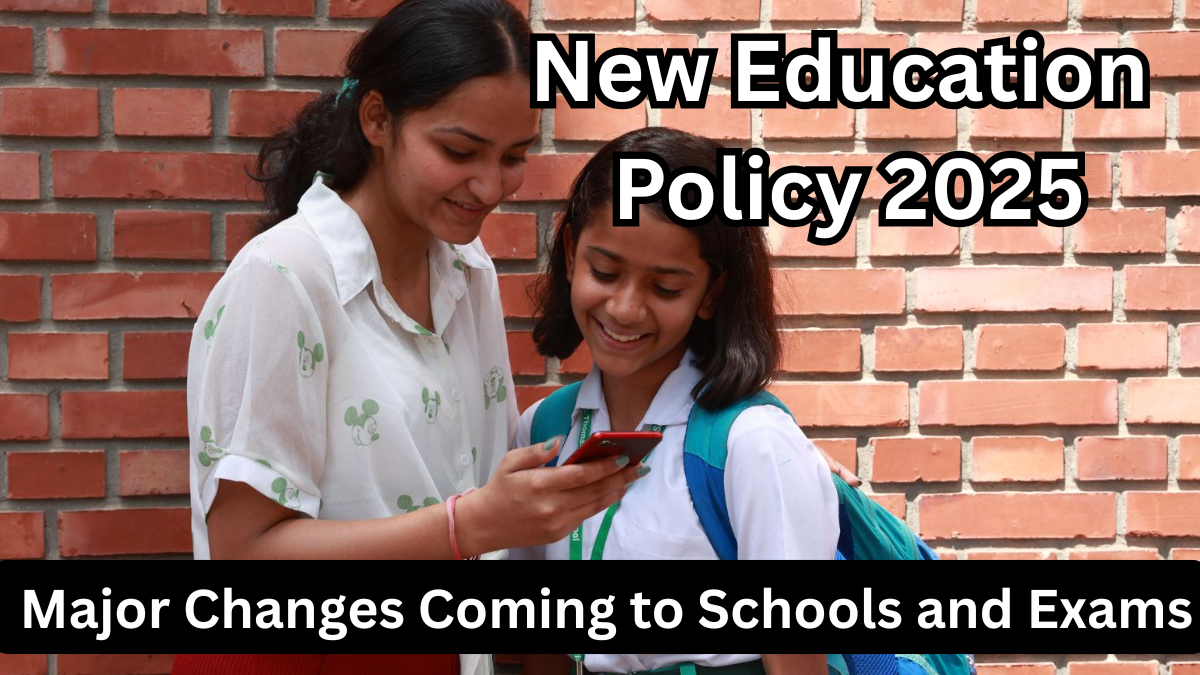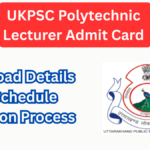India’s education system is undergoing a significant transformation with the New Education Policy 2025 (NEP 2025). Designed to make learning more holistic, skill-driven, and inclusive, the new policy brings sweeping reforms to how schools operate and how students are assessed.
If you’re a student, parent, or educator, here’s everything you need to know about the NEP reforms, the school curriculum change, and the New Education Policy 2025 implementation update.

Key Highlights of the New Education Policy 2025
The NEP 2025 isn’t just a policy document—it’s a vision for the future of learning in India. Here’s a snapshot of what’s changing:
| Aspect | Old System | NEP 2025 Changes |
|---|---|---|
| School Structure | 10+2 model | 5+3+3+4 model (Foundational to Secondary) |
| Medium of Instruction | Mostly English or State Language | Mother tongue/local language up to Grade 5 |
| Board Exams | High-stakes, once-a-year | Modular exams held more than once a year |
| Curriculum Focus | Rote learning | Critical thinking, skills, experiential learning |
| Assessment Pattern | Memory-based exams | Competency-based assessments |
| Vocational Education | Optional or absent | Mandatory from Grade 6 onwards |
1. New 5+3+3+4 School Structure
The biggest school curriculum change under NEP reforms is the restructuring of the school system from the traditional 10+2 model to a more inclusive and age-appropriate 5+3+3+4 format:
-
5 years: Foundational Stage (Preschool to Grade 2) – Play-based and activity-based learning
-
3 years: Preparatory Stage (Grades 3–5) – Focus on literacy, numeracy, and discovery
-
3 years: Middle Stage (Grades 6–8) – Introduction to abstract concepts, vocational education begins
-
4 years: Secondary Stage (Grades 9–12) – Flexibility in subjects, interdisciplinary approach
Goal: Ensure that children receive age-appropriate, enjoyable, and meaningful education from the very beginning.
2. A New Approach to Exams and Assessments
Say goodbye to exam stress. The New Education Policy 2025 implementation update reveals a refreshing new exam system.
What’s changing?
-
Board exams will now be held twice a year for flexibility and reduced pressure.
-
Students will be allowed to retain their best score, encouraging improvement and self-paced learning.
-
Competency-based assessments will focus on real understanding rather than rote memorization.
-
Report cards will feature 360-degree evaluations, including peer and teacher feedback.
3. Curriculum Revamp: More Than Just Books
With the school curriculum change, students will be exposed to a well-rounded education that blends academics with life skills.
Key changes in curriculum:
-
Greater emphasis on critical thinking, creativity, and problem-solving
-
Inclusion of coding, artificial intelligence, and environmental studies
-
Mandatory vocational education from Grade 6
-
Focus on regional languages and Indian knowledge systems
The idea is to nurture students’ unique talents while preparing them for a global future.
4. Teachers and Training
Teachers are the heart of education. NEP 2025 ensures they are well-equipped for this transformation:
-
Continuous professional development programs
-
Use of technology in classrooms
-
Training in multilingual education
-
Teachers will now become facilitators of learning, not just information providers
5. Inclusive and Equitable Education
The policy ensures no child is left behind:
-
Gender inclusion funds to promote education among girls and transgender students
-
Scholarships and bridge programs for disadvantaged groups
-
Emphasis on education for children with disabilities
-
Technology-driven platforms for remote and tribal areas
Implementation Timeline
| Phase | Activity |
|---|---|
| 2024 | Pilot programs in selected schools |
| Mid-2025 | Nationwide rollout of key components |
| 2026 and beyond | Full-scale adoption with annual evaluations and feedback |
The New Education Policy 2025 implementation update suggests that most schools will begin transitioning during the academic year 2025–26.
Frequently Asked Questions (FAQs)
1. What is the 5+3+3+4 system under NEP reforms?
It is a revised school structure that replaces the 10+2 model, focusing on cognitive development and age-specific learning needs.
2. Will board exams still exist under NEP 2025?
Yes, but with changes. They’ll be held twice a year with reduced syllabus focus and a competency-based format.
3. How will the school curriculum change under NEP 2025?
The curriculum will prioritize life skills, coding, environmental awareness, and critical thinking, reducing rote learning.
4. When will the New Education Policy 2025 be implemented fully?
Implementation begins in 2025 and will continue in phases, with most reforms active by 2026.
Click here to learn more




